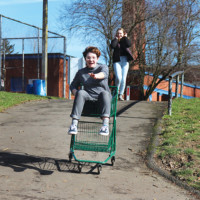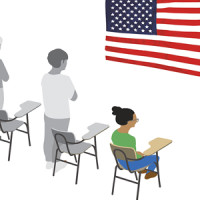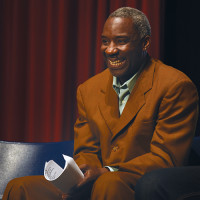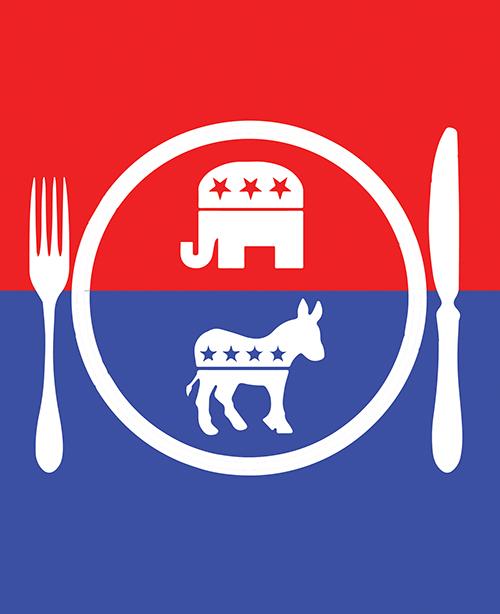
The air was more tense than usual last May with my grandfather’s visit to our home in Portland coming up.
My mom, dad, brother and I sat around the dinner table eating and wondering what my grandpa’s June visit would be like this time, especially with the presidential election closing in.
Finally, my mom put down her fork and broke the silence: “Please promise me that none of you will bring up politics while he’s here,” she said.
It was a normal request of us. My grandpa’s conservative beliefs weren’t unfamiliar, avoiding politics around him had become habitual.
In our world, it’s common to encounter opposing viewpoints within families like mine. With roots in the South and the East Coast and one small branch in liberal Portland, political disputes happen during every family vacation. Starting when I was little, I remember hearing racist tinged comments in the midst of conversations. Other times I overheard debates over presidential candidates in another room.
After 15 years of living in Portland in a Democratic household with non-religious parents, my own beliefs naturally followed that same path. But with each visit to see my grandparents, either in a small town near the coast of New Jersey or a small city in central Virginia, I have become more uncomfortable with the points of view that run so counter to me and my parents.
It’s made me wonder if I’ll ever be able to enjoy spending time with my extended family, especially this year during such an explosive election season. But over the summer, I made a change. I decided to get involved in the disputes to understand my place in these conflicts and what they mean for my family.
I’ve grown up surrounded by the liberal ideas of Portland and my parents, with limited knowledge of their very different pasts. My dad grew up in New Jersey with beliefs that mirrored those of his mildly conservative parents. My mom grew up in Virginia in the 1970s when it was normal for uniformed maids of color to serve daily at her grandparents’ homes.
The two eventually converted to the liberal side in college, leaving right-wing leaning politics to their parents. But it wasn’t until my eighth grade year that I was exposed to the deeper political history of my family.
I remember having mock debates in my history class where students had to play the role of members of both sides of the Civil War. I, along with everyone else in my class, could barely form arguments in favor of slavery on the Confederate side.
Around that same time, my mom explained that I was the direct descendant of a Confederate hero, a man who my grandpa still looks up to with respect. It was then that things began to stack up for me.
I remember seeing a photograph of my grandpa smiling with Donald Trump at a small campaign meeting in Virginia. He’s the only person in my life that isn’t completely opposed to Trump. I wanted to understand the history behind his beliefs. Sensing my curiosity, my parents began telling us stories about their parents.
When my grandpa visited in June, I wondered what he would think of me having friends of different races and writing for a progressive magazine.
During his visit, all conversations were kept at surface level. It was the first time my mom didn’t play the evening news in the kitchen, for fear of any election coverage. His visit triggered some reflection by my immediate family. We agreed that our differing beliefs made our relationships with relatives less honest and more uncomfortable.
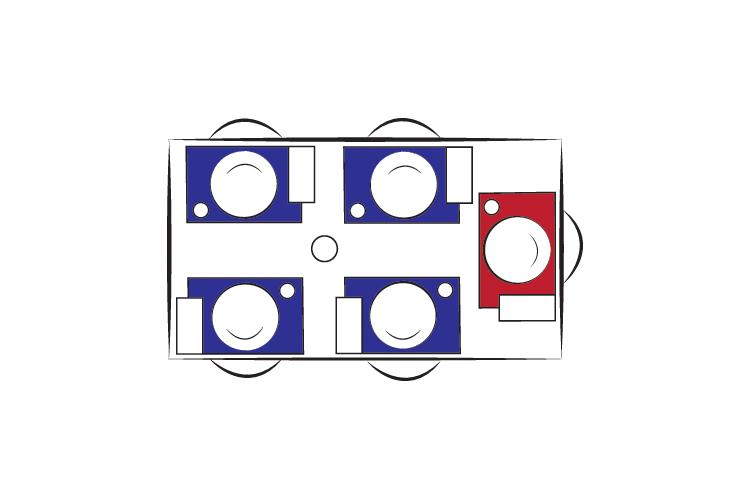
My mom then said something that’s stuck with me. She explained that my grandpa’s way of thinking is rooted in the history of his hometown and his parents, just as mine is. That doesn’t excuse the causes he supports, but in the case of a family that goes back centuries, I realized there’s nothing I can do to change him.
Later that summer, we traveled to New Jersey to visit my dad’s parents. On the first night, my other grandfather was complaining about having to pay so many taxes. My mom stepped in to defend her belief in a communal society, one in which everyone pays their fair share of taxes.
Instead of retreating to the living room with my younger brother, I decided to stick around. I stayed quiet while their voices rose and several accusations ensued. But I didn’t let the discomfort chase me away. The yelling eventually stopped, and I was glad to have been there after years of shying away from family conflicts.
The four of us on the West Coast have come to accept we will never be able to see anywhere near eye to eye with those rooted in what feels like another world. And vacations might not ever feel fully comfortable, but I’ve learned that that’s OK.
I know I will always feel nervous before each visit with relatives across the country. But the experience this summer made me realize that I need to brave the discomfort so that I can understand the opposing beliefs that exist in our country, as well as in my own family. ◆

